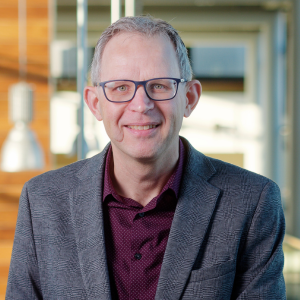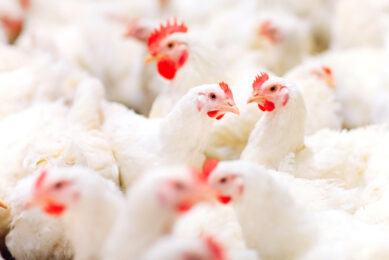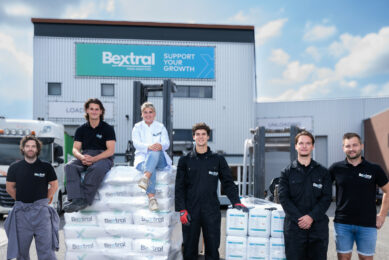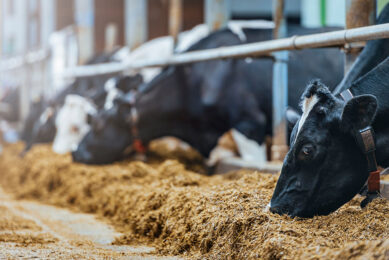Dr Gaetano Blanda, Evonik: “1 plus 1 is 2, also in animal nutrition”
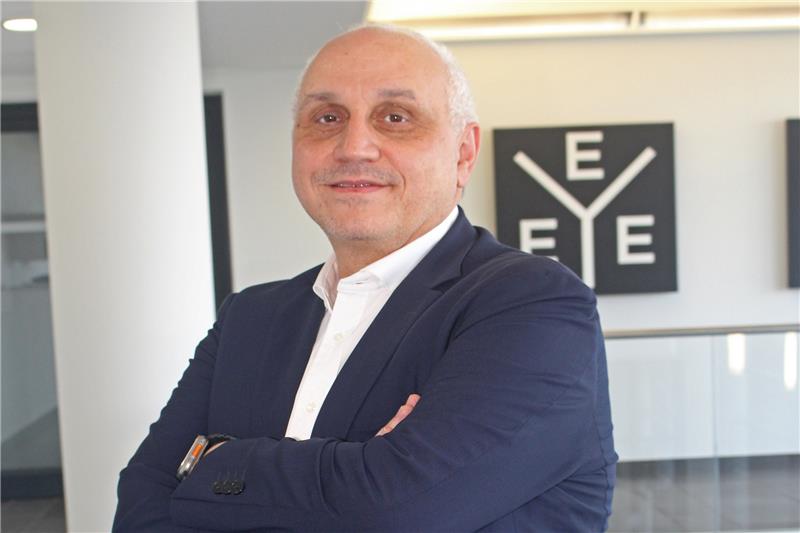
Animal nutrition may be a different business than coating additives, but they both form parts of the same world. After all, both follow the universal laws of chemistry and economics. Describing himself as a ‘data guy’, chemist Dr Gaetano Blanda quickly learnt about his new challenge since he ended up at the helm of Evonik’s Animal Nutrition business line.
In mid 2022, just over 2 years ago, chemical giant Evonik announced that there would be a change at the top of its animal nutrition business line. Out went Dr Emmanuel Auer, and in came the chemistry expert Dr Gaetano Blanda, who until that time had been head of the coating additives business line in a completely different division within the company.
The chemist landed at the top of the multi-million euro animal nutrition business line, which is amongst others home to MetAmino, a methionine supplement well-known in the pig, poultry, dairy and aquaculture industries. The arrival of a “data guy” in the world of animal nutrition.
Joining the animal nutrition business line must have been a change. You didn’t have any previous affiliation with the livestock industry, did you?
Dr Gaetano Blanda: “Apart from the fact that I like meat – no.”
What made you go for this challenge?
“I was asked to take over this position. Animal nutrition plays an important role within Evonik; it is one of its most prestigious business lines. Therefore, it was for me a no-brainer.
When I was responsible for coating additives, then of course it is nice that I can provide you with a car of which the surface is really clear and you can see your reflection. In animal nutrition, however, the purpose is clearer; it has the potential to help feed people in our growing world and growing population. I think this is a much stronger purpose.”
Is it more tangible as well?
“It is more emotional. I have been working in Asia for more than 8 years and I have been travelling for many years, too. People around the globe are fighting every day for a meal to survive, to get food for their family and for their children. That is what I mean – it gives purpose and is more emotional. I can contribute a little bit in helping these people.”
Also eye-opening for me was that the margins in the value chain are very small.
Has the world of agriculture surprised you?
“I was not aware that everything was so processed, from collecting soybeans until the processing of the food. I thought the automotive industry already had a high level of processing, but going to slaughterhouses, for instance, was really eye-opening for me.
Also eye-opening for me was that the margins in the value chain are very small. I thought that there would be much more space. If I see what food costs in restaurants, I thought there must be more profit in the value chain.”
Could you reflect on your personal journey over the last 2 years?
“The Evonik organisation has many years of experience in this industry, and the employees know almost everything. One day a short Italian is coming around, a chemist, and people in the business expect “the only thing that he can do is he can harm us, because he has no clue.”
So in the beginning I must have raised the simplest questions, because I simply did not know things. I was not aware of what a ‘feed conversion ratio’ was. Neither did I have any idea about diets or about soy. For colleagues who had been in the industry for 20 years this must have seemed like: “he does not know the basics, how could he be the leading person of this organisation?”
Our people in the industry have been very helpful and took the time. I have seen a lot of production plants, I have seen a lot of feed mills, a lot of processing houses, and we have had lots of food for discussion. That is how I got a feeling for the industry. Once I started to find my way, I was quickly assimilated into the animal nutrition family.”
I hope that my experience across different industries can be beneficial, as many aspects of animal nutrition involve chemistry
And then your own skills are a bonus.
“I am a science-based guy; a data guy. I am always saying to my colleagues: ‘show me the data’. And also in animal nutrition, 1+1 is 2. Certain economics are valid in all industries.
I am obsessed with creating value for our customers. I believe the fixed point of our business is always our customers. I hope that my experience across different industries can be beneficial, as many aspects of animal nutrition involve chemistry. Additionally, my experience in various regions supports this goal. Therefore I am hopeful that I can create value in this context.”
Did you change a lot?
“We had to change a lot, for 2 reasons. One is that, in the beginning of 2022, we had the invasion of Russia into Ukraine. This, of course, created a lot of pressure in the markets, on raw materials and even us – the leading company in this field – we were not unaffected.
On the other side, for the future, I believe that dedication and focus are more successful than a combined business model. Therefore, I took this opportunity to re-focus the animal nutrition business into 2 complementary parts. One is now focusing mainly on methionine and the other on the specialty business. My goal here is to significantly develop the specialty business. Both businesses operate with a different business model. Adjusting the entire global organisation to these two business models was a major change, and we are still in the transformation process. We had to ask 200 people to leave in this transformation.”
 What makes methionine, in particular, stand out?
What makes methionine, in particular, stand out?
“We are known for MetAmino, I think meanwhile it is a synonym for DL-methionine. The methionine business follows a supply-and-demand business model, so can now look at ways to be more cost-efficient. The customer is not willing and probably cannot afford to pay 1 cent, 1 RMB or 1 rupia more if he finds an alternative solution which costs less. We needed to be able to follow the customer.”
What geographical areas in the world are for Evonik the most important?
“All regions are important. We have plants in all 3 regions, which differentiates us from our competitors. For methionine, we have a plant in Mobile, Alabama, US, supplying the Americas; in Antwerp, Belgium, for Europe and the Middle East; and Singapore for Asia. With our animal nutrition business, we are present in all regions, in nearly every country, even in the smallest ones. From Ghana to Peru or the Philippines, you can find us.”
How important is Germany for Evonik?
“We are a global player with roots in Germany. Germany is important as this is where we have our innovation hub to start new technologies. There is a deep knowledge in Germany about feed and nutrition. It is a foundation which we can build on.”
Evonik has recently been communicating a message of sustainability. What will visitors get to see at your booth at EuroTier?
“We were one of the first companies to come up with the concept of low crude protein diets, trying to convince the industry that 1 kg of methionine really can compensate 67 kg of soyabean meal for broiler feed. It is very important to continue elaborating on that message. It is cost-efficient for our customers, as well as sustainable.
We will also highlight our new MetAmino Atlas, and intensive set of structured trials over 12 countries across 4 continents, involving over 2 million birds, swine and aqua species, confirming the concept. We will also communicate our latest novelty related to insects, as we have a solution for feeding insects for the production of animal protein.”
In specialty nutrition, our people have discovered that boosting metabolism and gut health can cut broiler greenhouse gas emissions by up to 5%
How does Evonik help to reduce the CO2 footprint?
“When we talk about sustainability, there are 3 categories. First of all, there is the footprint, for Evonik as corporate. We are very proud that already today we are using 35% less CO2 than the industry standard. We have a clear roadmap to reduce it even more, year-on-year.
We are also talking about handprint. Handprint is what we can do to support our customers to reduce their footprint. And here, our low crude protein diets play an important role. As I mentioned, 1 kg of methionine can reduce 67 kg of soybean meal. What that means is that you need fewer fields to grow soya, you need less water, you need less fertiliser, and you emit less nitrogen in livestock production. In specialty nutrition, our people have discovered that boosting metabolism and gut health can cut broiler greenhouse gas emissions by up to 5%.
Then we have something also we call heartprint. You will see that, at Evonik, when you go around the floors, you will see passionate people who believe that sustainability is our duty, to leave this planet to our children in a better way than we received it.”
Join 13,000+ subscribers
Subscribe to our newsletter to stay updated about all the need-to-know content in the dairy sector, two times a week.


